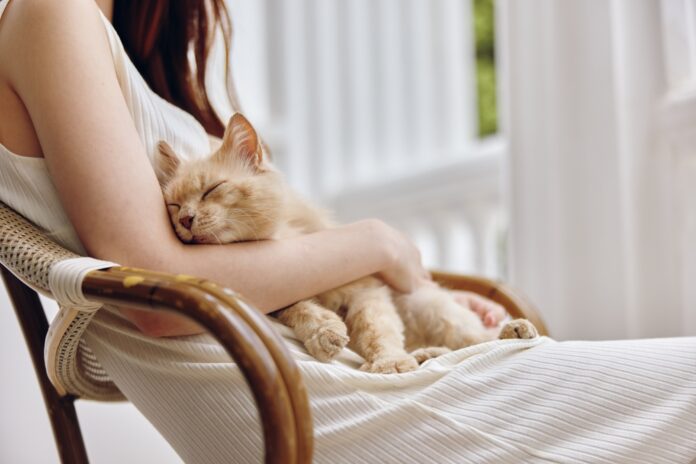Why artificial scents are harming your pets

Artificial scents may make your house fresh and fragrant, but the chemicals that go into them can be toxic.
You’ve seen the ads for all those air fresheners, room sprays and scented laundry products with their flowery, pine forest or sea breeze fragrances. They make your home smell nice and fresh, but don’t let those “natural” scents fool you.
Most scented commercial household products contain chemicals that can have a detrimental effect on the physical health of your human family, and especially your animal companions, who are much more sensitive than we are. Some of these chemicals have the potential to cause cancer and brain damage in humans, so it’s reasonable to assume they’re also harmful to dogs and cats.
Two absorption routes
A study conducted by the Environmental Working Group tested 43 common chemicals found in household products, including scented ones, and discovered that dogs have higher levels of these substances in their bodies than humans do. How is this possible, when many of these products don’t seem to come into direct contact with your animal? Veterinarian Dr. Gloria Dodd says there are two main ways animals come into contact with fragrance chemicals – by inhaling the fumes or rubbing against your clothes or skin.
“Researchers have found that through inhalation, these chemicals get into the animal’s bloodstream and affect every organ the blood touches,” Dr. Dodd says. “Secondly, the chemicals can get into his system through physical exchange with the person’s skin or clothing.” Take fabric softeners, for instance. The chemicals that leave your clothes feeling so soft and fresh-smelling are released into the air and also stay in your clothes for a long time. So your companion may either inhale the fumes or absorb them through his skin when he snuggles up for a belly rub or a scratch behind the ears. “The chemicals in fabric softeners are pungent and strong smelling – so strong that they require the use of heavy fragrances just to cover up the smell,” adds veterinarian Dr. Deva Khalsa. “Dryer sheets are particularly noxious because they are heated in the dryer and the chemicals are released through dryer vents.”
So is it the smell or the actual chemical that your animal reacts to? According to Dr. Khalsa, inhaling these toxins has basically the same negative effect on an animal as direct skin contact or ingestion. “When you inhale pollens or smoke, you get an allergic reaction,” she says. “Inhaling is just the same as skin contact or ingestion.”
Symptoms and treatment
When animals come into contact with synthetic perfumes, their bodies will begin reacting to them. Symptoms to watch out for are sneezing, and nasal and eye discharge. The liver can become toxic, affecting digestion, and immune and musculoskeletal symptoms can also emerge. Chronic disease may result, or the eventual development of cancer or organ failure. Itching is another sure sign of a reaction to the chemicals your companion has come in contact with. Dr. Khalsa adds that gastrointestinal symptoms can also occur, but most veterinarians don’t attribute these signs to toxins and chemicals in the environment.
If you suspect your dog or cat may be reacting adversely to any household product, whether it’s scented or not, seek veterinary attention as soon as possible. Dr. Dodd recommends seeking out a holistic veterinarian who is familiar with detoxification and support methodologies. “Orthodox veterinarians would only give steroids and antibiotics, which make the health of the animal worse,” she says. Dr. Dodd adds that effective treatment consists of detoxification with homeopathic remedies called nosodes. Support may also be needed for the liver, and respiratory and immune systems, using homeopathy, ortho-molecular supplements and oral oxygen drops.
Preventing exposure
In order to make yourself and your home toxin-free, consider switching all cleaning products – scented or otherwise – to those made with all-natural ingredients. Baking soda is great when used in either homemade cleaners or just sprinkled right on the surface to be cleaned. If you have carpets, cornstarch does as good a job as most carpet cleaners. Lemon juice or white vinegar helps remove grease, mildew and hard water stains.
If you want fragrance, add a touch of lavender oil or rose water to your homemade cleaners. You can also buy naturally-scented non-toxic cleaners, room sprays, laundry products and deoderizers. And instead of reaching for a bottle of synthetic perfume, try essential oils such as eucalyptus, jasmine, lavender, rose or sandalwood. Just be sure to use caution with essential oils if you have cats.
At the end of the day, we really don’t need to use synthetic fragrances and scents. As Dr. Dodd so aptly puts it: “Just keep clean – forget the perfume!”




